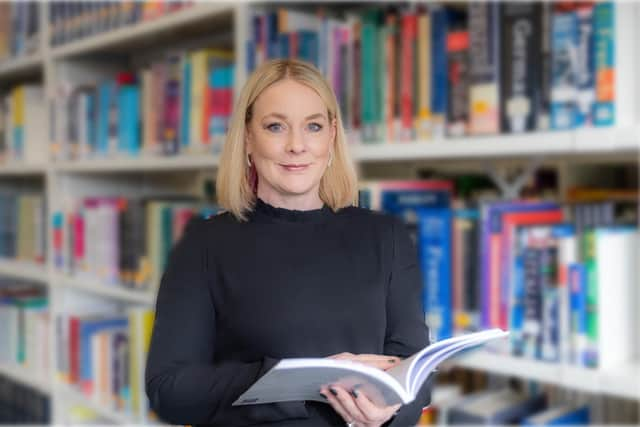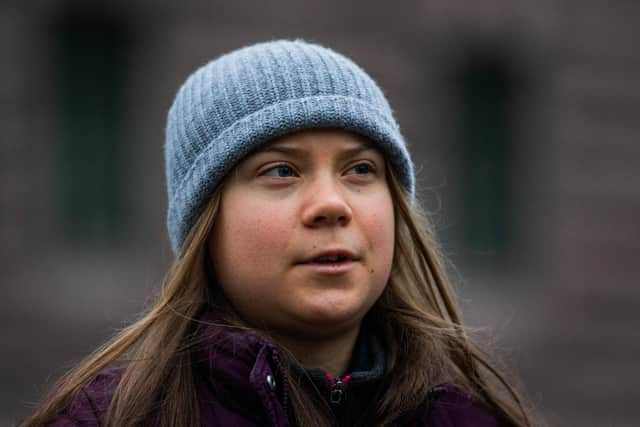Leeds Trinity University's Professor Leigh Hoath is on a mission to get schools tackling the climate crisis
The Swedish activist grew famous for her school strikes, but Dr Hoath, a Professor of Science Education, knows youngsters also need to be engaged using the curriculum and is on a mission to make sure envrionmental concerns are effectively woven into their lessons.
Dr Hoath is Deputy Dean of the School of Education at Leeds Trinity University, the co-chair of the Association for Science Education (ASE), a regular contributor to its conferences and former editor of its Primary Science Journal.
Advertisement
Hide AdAdvertisement
Hide AdHowever, with her friend Heena Dave, she also co-founded Climate Adapted Pathways for Education (CAPE), which is working with more than 90 schools to encourage evidence-informed action in response to the climate crisis.


Dr Hoath says that “subject-specific links that can be made. So science and geography are your obvious ones. But you can use history as a means, you can look at environmental art within the art lessons, you can start to look at the impact of carbon footprint on sporting events, for example, in PE.
"Those sorts of links can be made, as long as they’re meaningful links, not shoehorned in.
“But I think it's about it's about using a climate change lens to look at the existing curriculum.”
Advertisement
Hide AdAdvertisement
Hide AdDr Hoath will discuss her work at Leeds Trinity’s series of Inaugural Professorial Lectures, delivering her talk Imagineering context, culture and climate at the Main Campus in Horsforth on Tuesday, December 5 from 5.30pm.


Last year, Dr Hoath, colleagues at the university and the Teacher Development Trust published a report offering a vision where “all teachers and school leaders are equipped to help children and young people take climate action and protect the environment”.
Among its points was that, far from being an afterthought, the “importance of a whole-school culture which respects and responds to the climate crisis is essential for effective change”.
Dr Hoath says: "If you look back, there are quotes from 2004, where Tony Blair was promising that climate change education would be the fabric of what was being taught in schools. So it's been around a long time and there have been promises and nothing's really happened with it. There's so much now that's on the agenda, which is really good. The awareness of it is something to be really grateful for.
Advertisement
Hide AdAdvertisement
Hide Ad"What we're having to do is really work hard to mitigate things like people not knowing about it – they don't know what net zero actually means. That idea of having climate literacy.
"And children are genuinely worried. So one of the things that we work really hard with our schools to do is to teach this in a way that mitigates climate anxiety.”
She wants to help youngsters avoid pressures and experience what has been called “activism burnout”.
Dr Hoath, who lives in Horsforth, north-west Leeds, says: “Because everybody's going: ‘You could be like Greta’. Well, not every child wants to be the next Greta. And equally it's about making bigger differences, like not just individuals recycling - it's about that collective action and collective responsibility, because you're ultimately pushing for a societal behavioral change, which is a massive ask, isn't it?”
Advertisement
Hide AdAdvertisement
Hide AdIt is also about giving teachers the confidence to teach what is actually a complex subject area, she says.
Positivity also plays a role. "I remember being in school and being about seven years old, and going home really upset because I was told we’re going to run out of fossil fuels and there'll be no energy,” says Dr Hoath, who grew up in Falkirk, Scotland.
There was no mention of renewables, she remembers. “Maybe we went on and did that in the next lesson, I don't know, but I can remember that fear now, and we've got to make sure that actually we're giving our children a curriculum of hope, that actually they can see themselves as part of the solutions and they can move towards that behavioral change that we need to see.”
People interested in attending can register for free tickets to the lecture on the Eventbrite website.